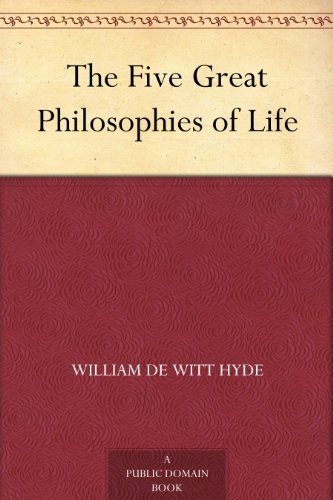Summary Link to heading
“The Five Great Philosophies of Life” is a thoughtful exploration of the philosophical frameworks and beliefs that shape human lives. Hyde discusses five major world philosophies: Epicureanism, Stoicism, Platonism, Aristotelianism, and Christianity. Each philosophy is examined in terms of how it addresses existential questions and offers insights into leading a meaningful life. Hyde aims to convey the practical applications of these philosophies, illustrating how they can provide guidance and a road map to living well.
Review Link to heading
William De Witt Hyde’s “The Five Great Philosophies of Life” is a clear and accessible introduction to significant philosophical traditions. The book is notable for its ability to distill complex philosophical concepts into understandable ideas without oversimplifying them. Hyde’s work is generally praised for its clarity, succinctness, and engaging narrative style. However, some critics argue that by attempting to cover such broad philosophies in a single volume, the analysis of each may not be as deep as some scholars or advanced students of philosophy might desire.
Key Takeaways Link to heading
- Epicureanism: Emphasizes the pursuit of happiness through the moderation of desires and the cultivation of simple pleasures.
- Stoicism: Advocates for self-control and resilience in facing life’s challenges, emphasizing virtue as the path to true contentment.
- Platonism: Focuses on the pursuit of truth and the importance of the ideal forms and intellectual understanding.
- Aristotelianism: Encourages a balanced and rational approach to living, emphasizing the cultivation of virtues and ethical behavior.
- Christianity: Highlights love, forgiveness, and faith in a divine purpose as guiding principles for living a fulfilling life.
Recommendation Link to heading
This book is recommended for readers who are new to philosophy and interested in gaining a foundational understanding of major philosophical approaches to life. It can also be beneficial for those looking for practical insights to apply in personal growth and ethical decision-making. Given its clear exposition and accessible language, it serves as a valuable resource for both general readers and students seeking an introduction to philosophical thought.
